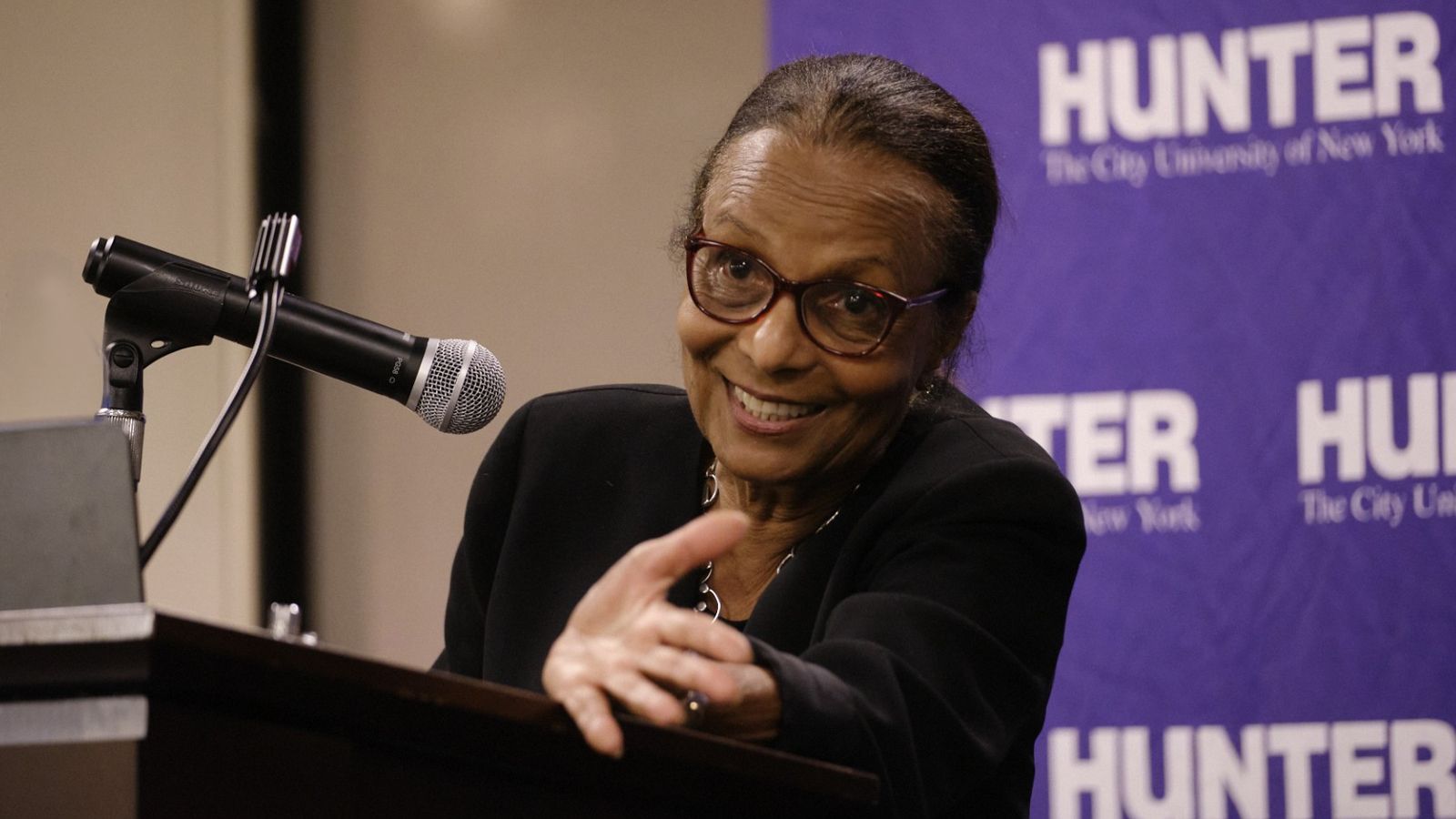Elizabeth Nunez, the celebrated Trinidad-born novelist and distinguished Hunter College professor emerita of English, died November 8 at her home in Brooklyn. She was 79.
The author of 11 books, including the acclaimed Prospero’s Daughter and Bruised Hibiscus, and 2022’s Now Lila Knows, Nunez taught fiction writing at Hunter starting in 2010, when CUNY named her a distinguished professor. She retired this year.
Called “a master of pacing and plotting” in the New York Times review of Prospero’s Daughter, Nunez was often praised for her lyrical writing.
“I tell my students that you have to write with your ear,” she said on an episode of Eldridge & Co. that aired on CUNYTV in 2014. “So many times, I actually do know what I want to say but I know it’s not right until I hear the rhythm. The word has to be just right. The sentence has to flow into the next sentence, and the paragraph has to flow into the next, and that you just hear with your ear.”
Nunez was born in Cocorite, Trinidad, and began writing at a young age, winning a prize for writing from a Trinidadian newspaper. She emigrated to the United States after completing high school in 1963 to study at a small Catholic college in Wisconsin. She received her master’s and PhD in English from New York University.
Nunez was a lifelong CUNY academic, beginning her teaching career in 1972 at Medgar Evers College, where she was instrumental in developing its writing curriculum and went on to hold a number of administrative appointments, including college provost.
In 2010, she began teaching as a Distinguished Professor at Hunter College. She was a respected colleague who always welcomed new staff with open arms, said Paul McPherron, chair of the English Department.
“It’s a big city and when you’re coming to a new place, I’ll always remember her overall smart, witty attitude and the respect she had for me,” he said. “I was very quiet in the beginning and, once, when I finally said something at a faculty meeting, she turned to me in the elevator and said,‘I really loved hearing your voice. I hope you talk more in department meetings.’”
McPherron added that no matter how many award-winning books Nunez wrote, she was always an educator at heart.
“She remained devoted to teaching fiction to first generation college students here at Hunter,” he said.
Jeremy Glick, a professor of African Diasporic Literature in Hunter’s English Department, worked with Nunez for years before taking over her course load when she became ill, said she was a wonderful professor and fantastic colleague whose commitment to Caribbean culture was unbounded.
“What strikes me about her is how much she cared about advocating for Caribbean literature and how much she brought that passion to bear in her teaching and her own creative work,” Glick said.
Among Nunez’s most acclaimed works were:
Prospero’s Daughter, a retelling of Shakespeare’s The Tempest set on a Caribbean island. (New York Times Editors’ Choice; 2006 Novel of the Year, Black Issues Book Review)
Bruised Hibiscus (American Book Award, New York Times Editor’s Choice Award, 2001), a work of historical fiction that explores the effects of colonialism on gender roles and society.
And Beyond the Limbo Silence, which was picked by The Washington Post as a best book of 1998. Booklist wrote that the writing “will remind many of Toni Morrison and Alice Walker.”
Nunez was also co-editor of Stories from Blue Latitudes: Caribbean Women Writers at Home and Abroad, co-editor of the essay collection Black Writers in the ’90s, and executive producer of the New York Emmy-nominated CUNY TV series Black Writers in America.
Nunez won Hunter’s Presidential Award for Creativity in Scholarship in 2023. She is survived by her son, Jason, and two granddaughters.
Longtime Hunter College adjunct professor Eisa Ulen Richardson, author of Crystelle Mourning, remembered her best for the way she formed a community of Black women writers at Hunter.
“To be a Black woman writer is to experience a space of creative isolation. We Black women writers have had to find each other and Elizabeth Nunez understood that assignment,” she said. “She welcomed all of us into a kind of Sacred Circle and supported our writing in active, meaningful, valuable ways. By reading our manuscripts, inviting us on panels, introducing us to each other, she edified us — not the systems that would erase us. Each gesture of sisterly love was extended to so many of us who are Black women writers.”


